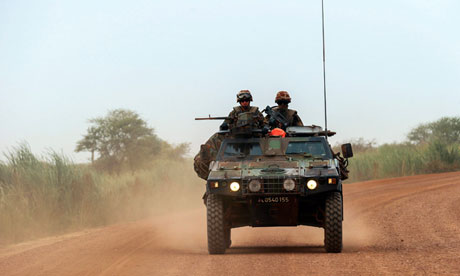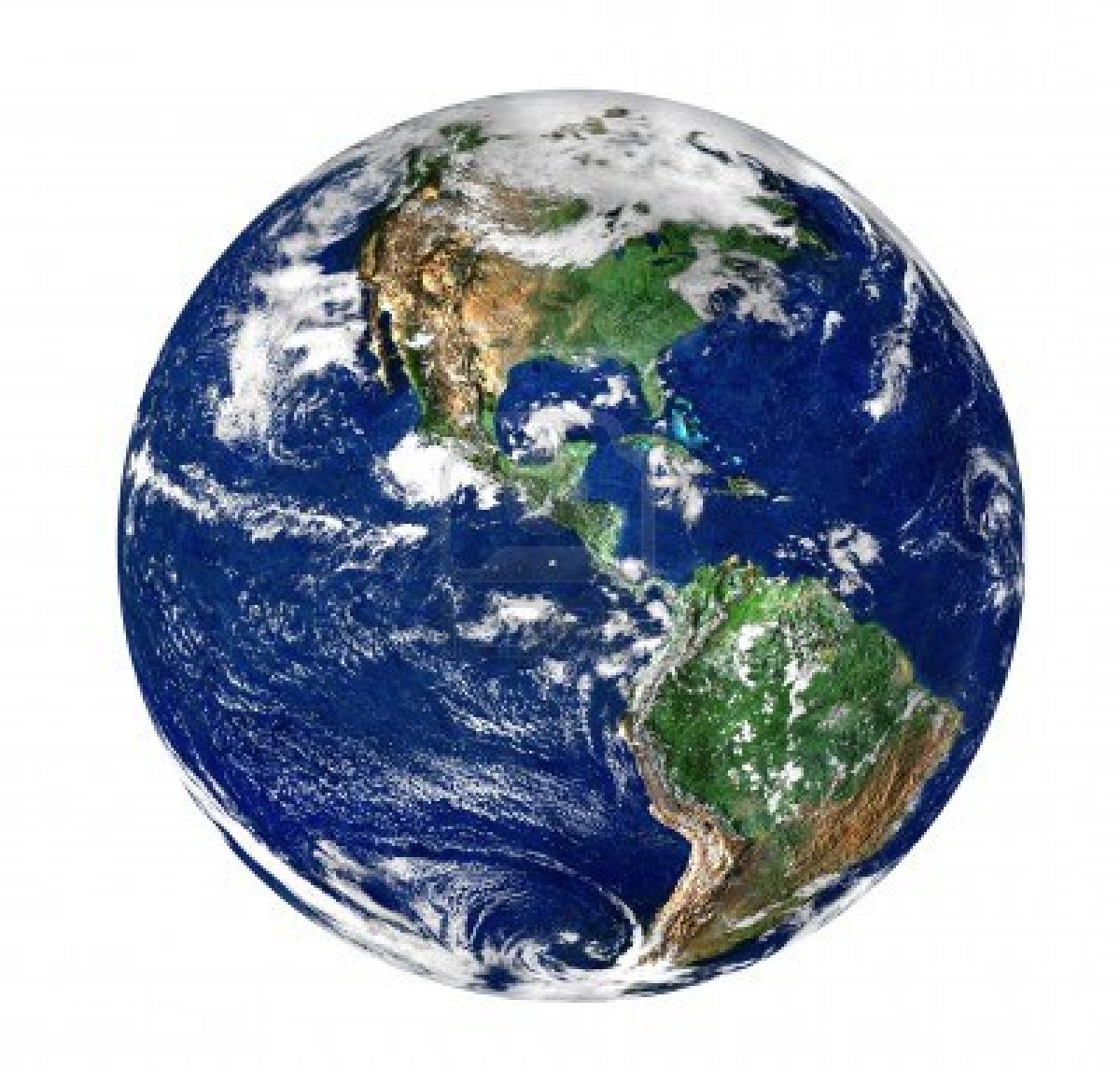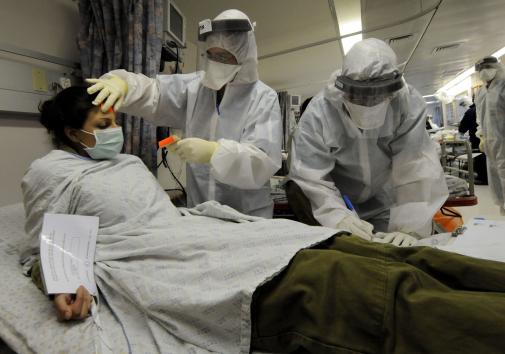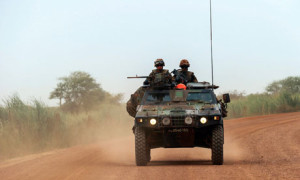
Three years after the start of the uprising that toppled Muammar Gaddafi, Libya remains a volatile, unstable state struggling to cope with post-war reality and the challenges of democratization. The ruling General National Congress has been unable to consolidate enough power to create a unifying political institution, and the lack of a strong military and police force in Libya prevents the government from combatting armed militia groups in the southern and eastern regions of the country. Mali, on the other hand, faced an arguably more serious problem in its battle with Tuareg rebels and Islamist militants who have taken over much of the Northern half of the country, despite military assistance from France and Germany. Although a ceasefire was brokered between militants and the Malian government in May, uncertainty over the country’s future still reigns.
For the region as a whole, there is a heightened risk of institutional collapse as terrorist organizations and ethnic rebels continue to spread through West Africa from the instability in neighbouring Libya and Mali. For the state of Niger, which shares an extensive border with both countries, the external security threat is particularly grave. Situated at the centre of West Africa, Niger is a state of increasing geopolitical importance with bottom-of-the-barrel socioeconomic conditions and feeble political institutions. Of 187 countries, Niger ranks next to last on the UN Development Programme’s Human Development Index for 2013, as the country faces rampant poverty, poor access to education, and a dismal health care system, with half the population under the age of 15 and the highest fertility rate in the world. With the country’s heavy reliance on the agricultural industry, its location on the edge of the Sahara desert not only affects food security in Niger, but desertification and occasional droughts have a severe effect on the economy. And, as one might expect, government management of these problems has been challenged by ethnic issues and the occasional military coup, which has created overall political instability in Niger.
Despite the array of socioeconomic and political problems plaguing Niger, the country has made significant progress in recent years with the help of development assistance from various international organizations and foreign aid. Furthermore, Niger has tremendous economic potential in its resources, particularly with regards to domestic uranium deposits. Niger is currently the fourth largest producer of uranium globally, and controls roughly an 8% share of global uranium resources. As well, in late May, the Nigerien government concluded a new agreement with the French mining company Areva, which will increase taxes on uranium ore extraction by 6.5 percent, allowing the state to reap significantly more money from Areva’s operations in Niger. If Niger is successful in attracting more foreign investment and can find funding to upgrade its broken infrastructure, it has the potential to be an important trade partner for the international community, and is thus becoming a more important strategic actor in West Africa.
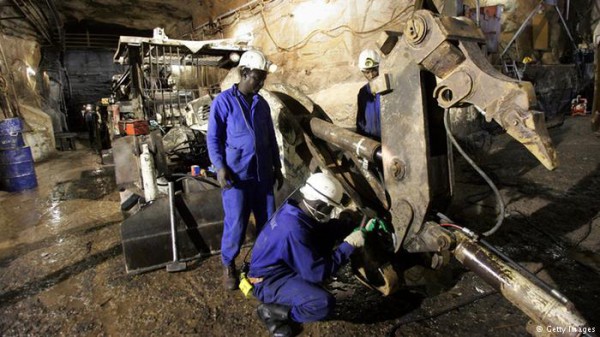
Apart from its rising economic importance, Niger’s geographical location is of particular importance to the West. Niger is, in a sense, cursed by geography, occupying an unenviable spot in the middle of a bad neighbourhood. With Libya to the north, Mali to the east, and Nigeria to the south, Niger faces external security threats from nearly all sides. Following the outbreak of civil war in Libya, thousands migrated south into Niger including armed Tuareg rebels – who have a very troubling history of violence with the Nigerien government – and Islamic terrorists. The threat of Tuareg and Islamist militants crossing the border into Niger as a result of the crisis in neighbouring Mali is also of grave concern, as is the export of Islamic terrorism from Nigeria into the south of Niger. Boko Haram, Al Qaeda in the Islamic Maghreb (AQIM) and Mouvement pour l’Unicité et le Jihad en Afrique de l’Ouest (MUJAO) have all had a presence in Niger to varying degrees over the past few years, and have been responsible for a number of high-profile kidnappings and violent confrontations with security forces. Due to the real and imminent threat from these terrorist organizations, as well as from other ethnic rebels operating in the region, Niger faces a significant threat to its security and stability, which may have major geopolitical consequences.
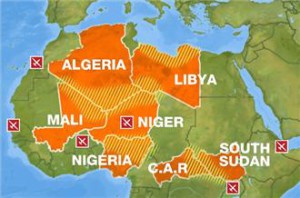
Although the West has interests in the economic potential of the country, Niger is strategically important for its partnership in counterterrorism efforts in the region. The West has a direct interest in preserving the security of Niger for if it were to become a failed state, terrorism would likely flourish inside its massive territory. The effect on the region could be devastating and the spread of violence and instability throughout other West African states could have significant security implications also for the West. In recognition of the danger posed by further destabilization, both the government of Niger and key Western actors have taken steps to not only strengthen Niger, but to use the state as a launching point for counterterrorism efforts in the region. The government has substantially increased funding for military and security forces in hopes of securing the country’s notoriously permeable borders. The United States has undertaken an active security relationship with Niger, establishing a drone base in the capital Niamey and sending US military personnel to train Nigerien military forces, while France and other European powers are also taking an interest in Nigerien security efforts.
On the whole, despite Niger’s vast resources and economic potential, political and socioeconomic problems plaguing the country along with regional security threats from Islamist and other ethnic militants has created a significant threat to Niger’s security. If the fate of Niger follows that of Mali and Libya, not only will the rest of West Africa face considerable security threats, but the implications could be disastrous for the West with the potential for an expansion of international terrorism. As a result, the West has a direct interest in the future of Niger, which has become an unexpectedly important ally in maintaining global security.

